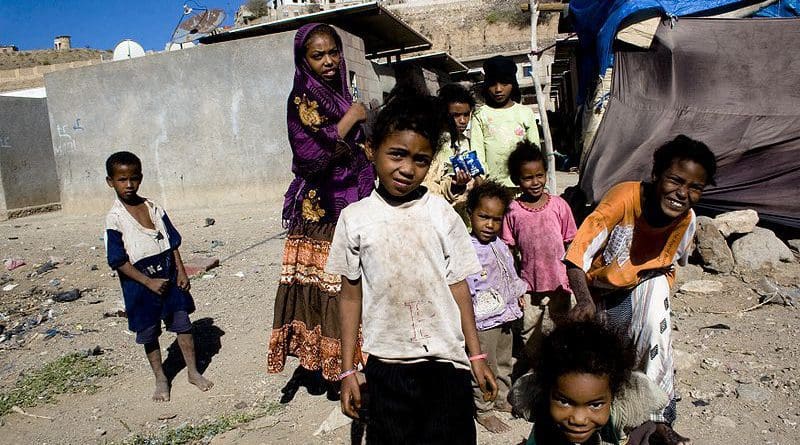Yemen: Authorities Failing To Protect People’s Basic Rights, Says HRW
Yemeni authorities are failing to meet their international legal obligations to protect socio-economic rights for millions of Yemenis, Human Rights Watch said in releasing a submission to the United Nations Committee on Economic, Social, and Cultural Rights.
After more than seven years of protracted conflict, the Yemeni government has not made progress in meeting their obligations to protect Yemenis’ right to health and to an adequate standard of living. Out of a population of 30 million, more than 23 million people in Yemen, including nearly 13 million children, remain in need of humanitarian assistance.
“The levels of starvation in Yemen are unprecedented and are a direct effect of the actions of the warring parties, including their attacks on health, food, and water infrastructure,” said Niku Jafarnia, Yemen and Bahrain researcher at Human Rights Watch. “Parties to the conflict need to take immediate action to alleviate the widespread health crisis that people in Yemen are facing, including first and foremost ending all attacks on civilian infrastructure.”
The committee, which monitors compliance with the International Covenant on Economic, Social, and Cultural Rights, will meet in a new session beginning February 13, 2023. Yemen is a party to the treaty.
The UN has said for several years that Yemen has one of the world’s worst humanitarian crises. But parties to the conflict have continued to repeatedly attack civilian infrastructure, including hospitals and food and water facilities, and blocked access to humanitarian aid, which has had dire consequences for Yemenis’ health and standard of living. The Saudi and UAE-led coalition, which participates in the conflict on behalf of the Yemeni government, has carried out numerous airstrikes on food and water infrastructure across Yemen, including farms, irrigation works, and fishing boats. The attacks have contributed to the widespread food insecurity and humanitarian needs that the population in Yemen is facing.
By the end of 2022, 17.8 million people in Yemen did not have access to safe drinking water, sanitation, and hygiene services, and 17 million people were food insecure, with 6.1 million facing “emergency” levels of food insecurity according to the UN World Food Programme. And yet, the Yemeni government has done little to alleviate the widespread starvation. Instead, the authorities have impeded the ability of millions of civilians to access much-needed aid by imposing bureaucratic requirements, Human Rights Watch said.
People with disabilities face heightened challenges in realizing their rights to health and to an adequate standard of living. In 2020, Humanity and Inclusion, a nongovernmental organization, found that 86 percent of people with disabilities in a study it conducted had experienced problems in getting services due to physical barriers, lack of security, and economic and social discrimination.
The government of Yemen has failed to protect the rights of children, specifically their rights to health and education. In May 2021, Human Rights Watch found that Yemen’s laws do not prohibit corporal punishment of students at school, while Article 146 of the Children’s Rights Act of 2002 confirms “the legal and legislative rights of parents to discipline their children,” effectively permitting violent punishment of children in the home. The government should heed calls from the UN committee and other UN entities to explicitly and effectively prohibit corporal punishment of children by law in all settings.
The war has also had a significant impact on children. As of April 2022, 10,200 children have been maimed in the 8 years of fighting, and the UN has verified that nearly 3,500 have been recruited by parties to the conflict. Children also face heightened risk of harm to their mental health. A 2020 report by Save the Children found that over half of the children they surveyed in Yemen reported feelings of sadness and depression, “with more than 1 in 10 saying they feel that way constantly.”
“The Yemeni government is not protecting its people’s basic human rights,” Jafarnia said. “They have an opportunity to save millions of lives, including the lives of children, by instituting policies that will allow for humanitarian aid to flow, and to make water, food, and health care accessible.”

